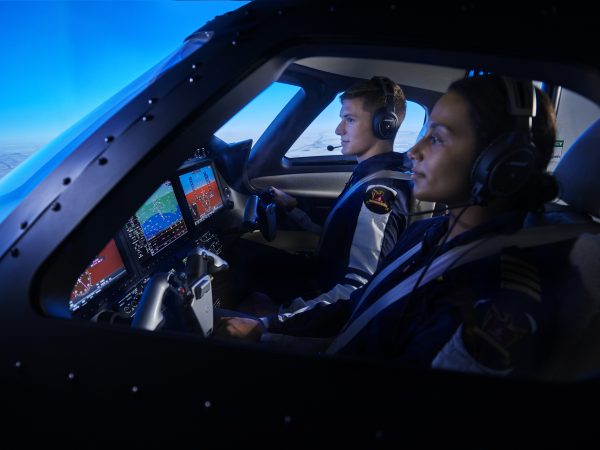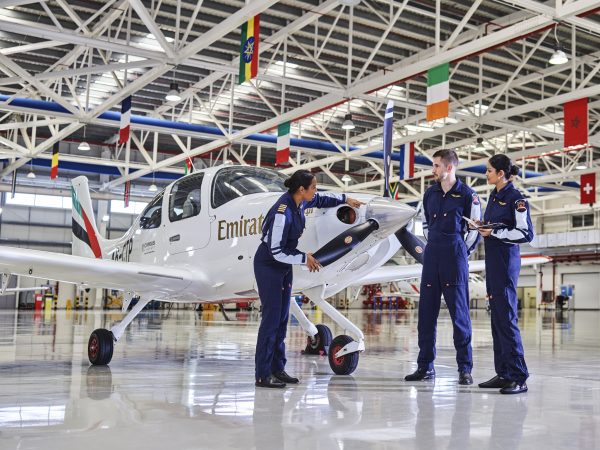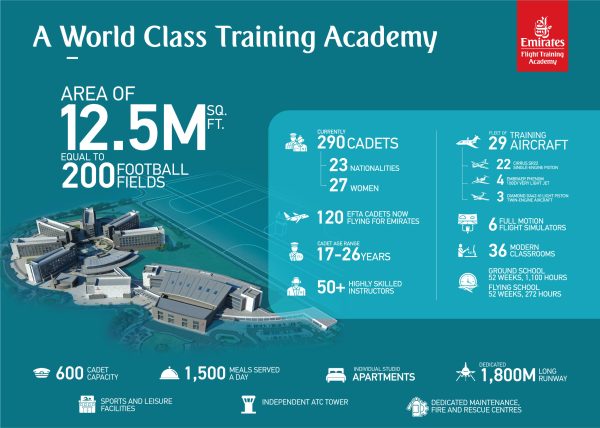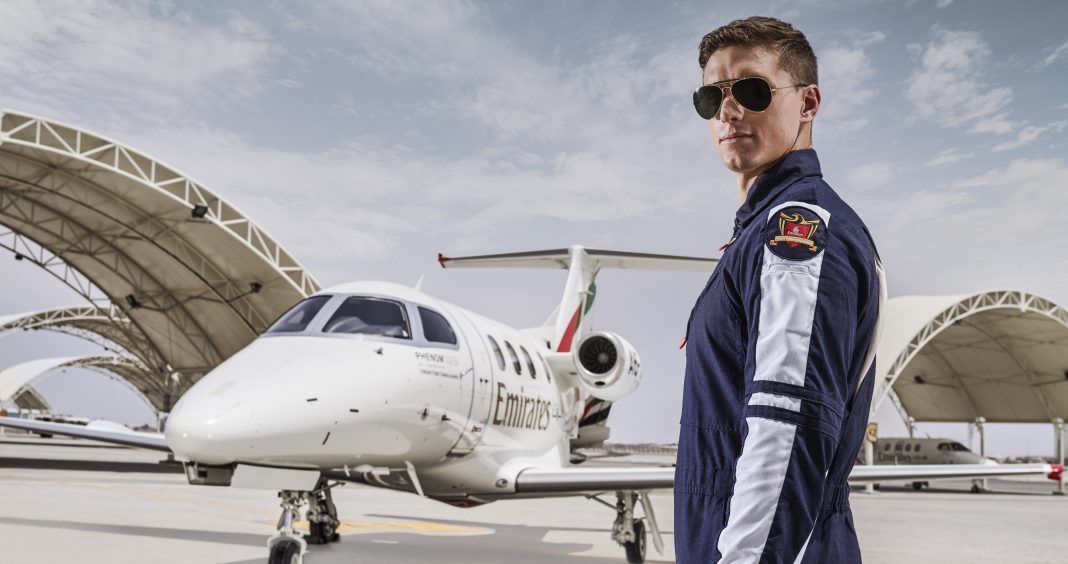DUBAI, 10 November 2023: Emirates Flight Training Academy (EFTA) cadets are forming a new generation of pilots critical to the future of aviation as the current batch of 290 graduates (23 nationalities, 27 women) join over 120 graduates who are already flying full-time for Emirates
EFTA, which was started with a focus on the national cadet pilot programme for Emirates, now offers world-class training to cadets from all over the globe.


Besides the staggering success of its graduates – who’ve all been snapped up by Emirates after a stringent recruitment process – the academy is flying high on integrating three brand-new Diamond aircraft into its training programme.
Captain Abdulla Al Hammadi, Divisional Vice President Emirates Flight Training Academy said: “EFTA is fully focused on establishing a reliable stream of pilots for the aviation industry, which has been staring at scarcity in the short to the long term, and giving aspiring cadets a visionary academy based in an iconic and one of the safest cities that is also one of the largest aviation hubs on the planet. We offer one of the most sophisticated cadet training programmes, delivered by our 50+ highly skilled instructors and backed by the exceptional standards and governance set by Emirates, the world’s largest international airline. Seeing the camaraderie and collaboration among our cadets as they graduate real-world ready with the highest levels of skills and competencies required by commercial pilots is inspiring.”

EFTA’s cadets now also fly the Diamond DA42-VI light piston twin-engine aircraft, successfully introducing multi-engine piston training at the academy. This means cadets train on three different aircraft types – single-engine, twin-engine and multi-engine light jets. This is a rarity among flight training academies that train cadets on just one or two aircraft types.
At the Dubai Airshow, EFTA will showcase its Diamond DA42-VI and Cirrus SR22 aircraft with instructors to share information about the academy’s fleet and cadet training programme.
Flight deck careers have seen a huge resurgence post-pandemic and are riding another wave of popularity. Salaries have increased, airlines are fast-tracking career paths and expanding at a phenomenal rate, aircraft are more sophisticated, and travel demand is booming – all these and more have made aviation a sought-after career. According to Oliver Wyman’s latest research, the gap between the supply and demand of pilots is currently about 17,000, and it will increase to 24,000 in 2026.
Emirates launched EFTA in 2017 to train UAE nationals and international students with no previous knowledge of flying. All graduates have the unique opportunity to go through the Emirates’ recruitment process.
The academy combines cutting-edge learning technologies and a modern fleet of 29 training aircraft – 22 x Cirrus SR22 G6 single-engine piston, 4 x Embraer Phenom 100EV very light jet, and 3 x Diamond DA42-VI light piston twin-engine aircraft.
EFTA’s state-of-the-art facility is spread over 1.2 million sqm, equivalent to 200 football pitches. It has 36 modern classrooms, six full-motion flight simulators, an independent Air Traffic Control Tower, and a dedicated 1,800m runway. Cadets live on campus in fully furnished, individual studio flats with an enviable range of recreational facilities, social activities and top-notch dining.
Ground school (52 weeks): All 36 classrooms have two 86″ touchscreens, running bespoke training software created specifically for EFTA. Cadets undergo at least 1,100 hours of ground-based training and access the material via their own devices, which are digitally interconnected, creating an interactive training environment. Flying Phase (52 weeks, 272 hours): Cadets train on simulators and the three types of training aircraft.
For more information on EFTA, click here.







